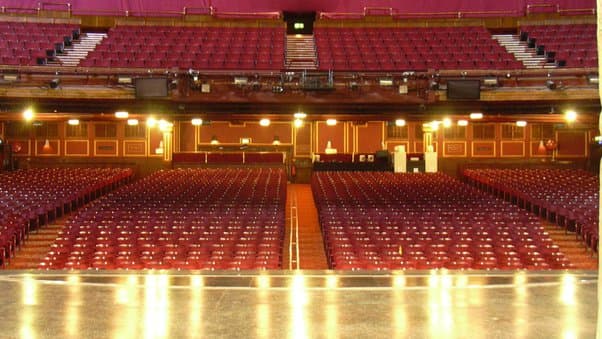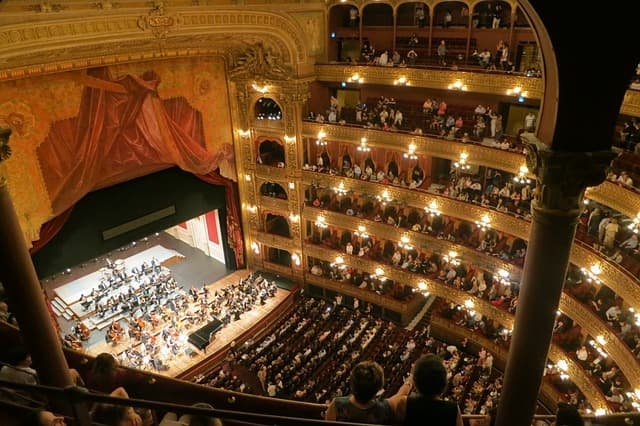The debate between theater and cinema has long been a topic of discussion among enthusiasts of both art forms. While cinema offers the allure of high-definition visuals, special effects, and the convenience of watching from the comfort of one’s home, theater continues to hold a unique place in the hearts of audiences worldwide. In this article, we’ll delve into the aspects that highlight the superiority of theater over cinema, exploring the immersive experience, live interaction, and artistic authenticity that define the theatrical experience.
1. Immersive Experience:
Theater provides a unique and immersive experience that cannot be replicated by cinema. Unlike the passive viewing experience of watching a film on a screen, theater engages all the senses, enveloping the audience in a world of live performances, intricate set designs, and emotive storytelling. From the moment the curtains rise to the final bow, theater-goers are transported to a different realm, where they become active participants in the unfolding drama on stage.
2. Live Interaction:
One of the most significant advantages of theater is the opportunity for live interaction between performers and the audience. Unlike cinema, where the actors are distant figures on a screen, theater allows for direct engagement and connection between actors and spectators. The spontaneity of live performances, the raw emotions conveyed by the actors, and the energy of the audience create an electrifying atmosphere that cannot be replicated in a movie theater.
3. Artistic Authenticity:
Theater is celebrated for its artistic authenticity and commitment to the craft of storytelling. Unlike the polished and edited productions of cinema, theater embraces imperfections and celebrates the raw, unfiltered essence of live performance. From the subtle nuances of an actor’s expression to the unscripted moments of improvisation, theater captures the essence of human emotion and the unpredictability of life in a way that cinema often cannot.
Theater vs. Cinema
| Aspect | Theater | Cinema |
| Immersive Experience | Live performances, intricate set designs | High-definition visuals, special effects |
| Live Interaction | Direct engagement with actors | Passive viewing experience |
| Artistic Authenticity | Embraces imperfections, live performance | Polished and edited productions |
FAQs (Frequently Asked Questions)
Q: Why is theater considered superior to cinema?
A: Theater is often considered superior to cinema due to its immersive experience, live interaction, and artistic authenticity, which create a unique and engaging atmosphere for audiences.
Q: What makes theater performances more compelling than cinema?
A: Theatre performances possess a unique charm and allure that set them apart from cinema. The live experience, intimate connection, and artistic authenticity of theatre create a dynamic and immersive environment that engages audiences on a deeper level. Whether it’s the thrill of live performance, the intimacy of human connection, or the raw authenticity of storytelling, theatre continues to captivate and inspire audiences around the world, making it a timeless and enduring form of artistic expression.
1. Live Experience:
One of the most significant aspects that sets theatre apart from cinema is the live experience it offers. Unlike film, where scenes are pre-recorded and edited, theatre performances unfold in real-time, creating a sense of immediacy and spontaneity that draws audiences into the action on stage. The energy and excitement of a live performance, coupled with the knowledge that anything can happen at any moment, make theatre a thrilling and immersive experience for spectators.
2. Intimate Connection:
Theatre fosters a unique and intimate connection between performers and audience members. Unlike cinema, where actors are distant figures on a screen, theatre allows for direct engagement and interaction between actors and spectators. The ability to see, hear, and feel the emotions of the performers up close creates a sense of intimacy and connection that enhances the overall experience. Audience members become active participants in the storytelling process, sharing in the laughter, tears, and collective emotions of the performance.
3. Artistic Authenticity:
Theatre is celebrated for its artistic authenticity and commitment to the craft of storytelling. Unlike the polished and edited productions of cinema, theatre embraces imperfections and celebrates the raw, unfiltered essence of live performance. From the subtle nuances of an actor’s expression to the unscripted moments of improvisation, theatre captures the essence of human emotion and the unpredictability of life in a way that cinema often cannot. The immediacy and authenticity of live theatre create a visceral and emotionally resonant experience that lingers long after the curtain falls.
Q: Can cinema replicate the immersive experience of theater?
A: While cinema can offer high-definition visuals and special effects, it cannot replicate the immersive experience of theater, which engages all the senses and transports audiences to a different world through live performances and intricate set designs.
In Conclusion
While cinema undoubtedly offers its own set of advantages, theater continues to hold a special place in the hearts of audiences worldwide. With its immersive experience, live interaction, and artistic authenticity, theater transcends the boundaries of traditional entertainment, offering a unique and enriching experience that cannot be replicated by cinema. Whether it’s the thrill of live performances, the raw emotions conveyed by actors, or the captivating storytelling, theater remains a timeless art form that continues to captivate and inspire audiences of all ages.









Recent Comments